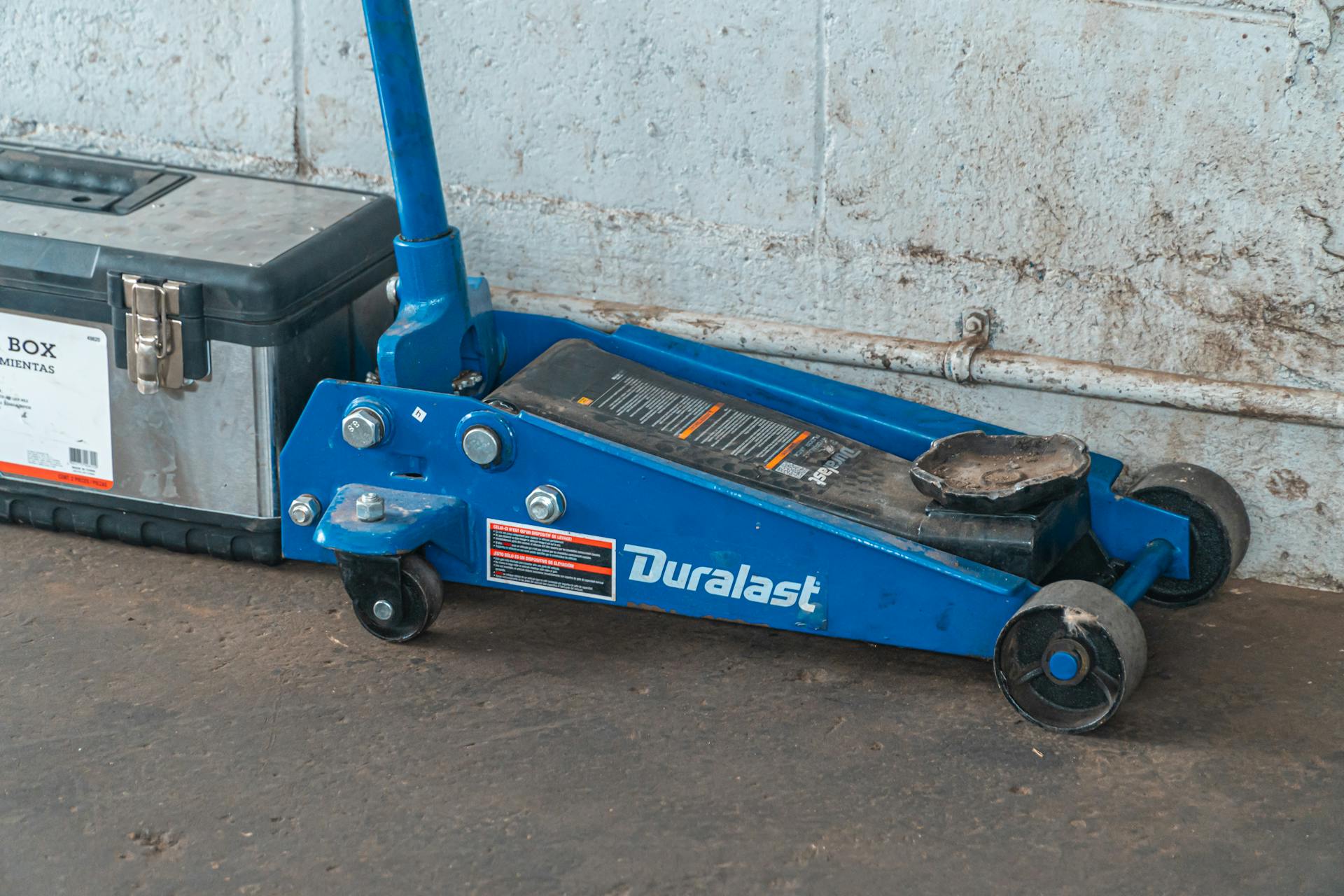
The White Jack Russell Terrier is a unique and lovable breed.
They typically weigh between 13-17 pounds and stand about 10-15 inches tall.
Their short coats require minimal grooming, but they do need regular nail trimming and ear cleaning.
Their energy level is high, so they need daily exercise to stay happy and healthy.
This breed is known for being intelligent and trainable, but can be stubborn at times.
Care and Upkeep
A white Jack Russell terrier's energy levels are off the charts, so be prepared for daily exercise sessions that'll keep them happy and well-balanced. They need several hours of physical and mental activity every day, which can be met with a daily long walk or hike, during which they should be on leash, as they may chase after quarry.
Their love for learning challenging tricks or conquering agility courses is unmatched, and they can thrive in dog sports like agility, lure coursing, dock diving, Frisbee, obedience, and nose work. They'll also enjoy vigorous games like fetch, tug, or catch.
Explore further: Pembroke Welsh Corgi Agility
A well-fenced yard is a must to prevent them from jumping, climbing, or digging their way out. Their short fur requires minimal coat care, but they still need regular attention to nail trimming and ear cleaning.
Bathing is relatively easy, with a smooth coat requiring only occasional bathing, and a broken coat needing some hand stripping to remove dead hairs. They should be bathed once every 4 to 6 weeks, unless they get dirty from digging in dirt.
Daily teeth brushing from puppyhood is ideal to prevent dental disease, and regular dental care is crucial to fight plaque. You can also use a stripping comb to remove dead hair from the top coat every six to eight weeks.
Expand your knowledge: Hand Stripping Cairn Terrier
Health and Nutrition
A white Jack Russell Terrier's health and nutrition needs are similar to those of any other Jack Russell Terrier. This breed has a lifespan of 13 to 15 years and is generally a healthy dog.
To keep your white Jack Russell Terrier at its best, you'll want to feed it a high-quality commercial dog food that meets the nutritional standards set by the Association of American Feed Control Officials (AAFCO). Look for a food that fits your dog's life stage, whether it's a puppy, adult, or senior dog.
The right diet is crucial for preventing health problems like patellar luxation, where the kneecap "floats" in the joint and slips out of place. This can cause your dog to skip or hold up the affected limb when walking. Treatment is usually medication, but in some cases, surgery is needed to correct the malformation.
Here are some common health issues to be aware of in Jack Russell Terriers:
- Patellar Luxation: causes the kneecap to slip out of place
- Legg-Calves-Perthes Disease: a hip condition that causes the head of the femur to deteriorate
- Compulsive Behaviors: barking, licking, chewing, and tail-chasing due to boredom, anxiety, and lack of social interaction
- Pulmonic Stenosis: a congenital defect that affects the heart, causing narrowed valve and changes in blood flow
- Eye Problems: lens luxation, glaucoma, primary glaucoma, and cataracts
A high-quality diet that's high in protein with quality ingredients can help prevent these health issues. Your veterinarian can help you choose the best food and develop a suitable feeding chart for your dog.
Common Health Problems

As you consider bringing a Jack Russell Terrier into your family, it's essential to be aware of the potential health issues that can arise. This breed is generally hearty and healthy, but some health concerns are more common than others.
Their lifespan can range from 13 to 18 years or more, with some living into their early twenties. However, there are a few health conditions to remain aware of.
Patellar luxation, a condition where the kneecap slips out of place, is a common issue in Jack Russells. You may notice your dog licking their knee, keeping their leg bent at an unusual angle, or limping.
Deafness is another potential concern, particularly in all-white Jack Russells, who may carry a recessive deaf gene. Cataracts, glaucoma, and progressive retinal atrophy are also eye problems that can affect this breed.
Cerebellar ataxia, a central nervous system issue, can cause uncoordinated movement, stumbling, and head tilting. Legg-Calve-Perthes disease, a congenital orthopedic disorder, can lead to degeneration of the hip joint and lameness.

Compulsive behaviors, such as excessive licking, chewing, and barking, are also common in Jack Russells. These behaviors can be addressed by providing regular exercise, social interaction, and stimulating toys and food puzzles.
Here are some common health issues to watch out for in Jack Russell Terriers:
- Patellar luxation
- Deafness
- Cataracts
- Glaucoma
- Progressive retinal atrophy
- Cerebellar ataxia
- Legg-Calve-Perthes disease
- Compulsive behaviors
- Pulmonic stenosis
It's essential to work with a reputable breeder who can provide health clearances for your dog's eyes and knees. By being aware of these potential health issues, you can take steps to prevent or manage them, ensuring your Jack Russell Terrier lives a long, happy, and healthy life.
Diet and Nutrition
Jack Russell Terriers are active dogs that need a quality diet to fuel their latest and greatest adventures.
They require a diet that is high in protein with high-quality ingredients to meet their energy needs.
A well-balanced and properly proportioned meal regimen is essential for their overall health.
You should look for a commercial dog food that meets the nutritional standards set forth by the Association of American Feed Control Officials (AAFCO).

Always shop according to your dog's age and pick a food that fits their life stage, whether you have a puppy, an adult, or a senior dog.
A high-calorie recipe that replenishes what they lose is necessary due to their high energy expenditure on a daily basis.
Be mindful of treat calories, as they can add up quickly and lead to weight gain.
If you notice your dog plumping up, your vet can recommend a plan to help your Jack lose weight and still get all the nutrition they need.
Owning a White Jack Russell Terrier
If you're considering bringing a white Jack Russell Terrier into your life, think you have the energy it takes to make them part of your family. They'll reward you with a spirited and smart companion for years to come.
You can expect to pay between $800 to $1,500 for a white Jack Russell Terrier puppy or adult from a reputable breeder. Some breeders may charge up to $2,500 for a show-quality dog.
If you decide to buy a white Jack Russell Terrier from a breeder, make sure to find one with high standards for the health and well-being of their canines. The Jack Russell Terrier Club of America is a great resource to find committed and quality breeders.
Here are some organizations to contact if you're looking to adopt a white Jack Russell Terrier or find a reputable breeder:
- Jack Russell Terrier Club of America Rescue
- Jack Russell Terrier Club of America Breeder Listing
- Russell Terrier Rescue
Adopt/Buy
If you're ready to bring a White Jack Russell Terrier into your life, you'll need to decide whether to adopt or buy. Expect to pay between $800 to $1,500 for a puppy or adult from a reputable breeder.
If you do decide to buy, make sure to find a breeder with high standards for the health and well-being of their canines. The Jack Russell Terrier Club of America (JRTCA) is a great resource for identifying committed and quality breeders.
A benefit of buying from a breeder is that your White Jack Russell Terrier could be better socialized than a rescue. If you're set on buying, be prepared for the possibility that some breeders may charge up to $2,500 for a show-quality dog.
If you're interested in adopting, there are several organizations you can contact. Here are a few options:
- Jack Russell Terrier Club of America Rescue
- Jack Russell Terrier Club of America Breeder Listing
- Russell Terrier Rescue
Pet Compatibility
When it comes to getting along with other pets, Jack Russell Terriers can be a bit of a handful. They're known for being very chipper and fun-loving, but this can sometimes translate to being bossy and trying to rule the roost.
They can usually get along with cats if they're raised alongside them, but it's essential to acclimate them to different furry, feathery, and scaly faces early on. This will help them become well-adjusted and less likely to try to chase or dominate other pets.
Their high prey instincts mean they might chase cats or other small animals just for fun, but they generally mean no harm. However, it's never a good idea to trust a Jack Russell Terrier around smaller cage animals, as they may unintentionally hurt or kill them.
Jack Russell Terriers can make amazing pets for a variety of different lifestyles, including families with children aged six and older. They're hardy enough for rural settings and small enough for tight living quarters or small city apartments.
A unique perspective: Bull Terrier Fun Facts
They tend to be very chipper and excitable, making them perfect playmates for kids. However, due to their independent nature, they may not be the best fit for very young children.
As a companion, a Jack Russell Terrier can thrive with regular exercise and attention. They're perfect for young active people or seniors who are slowing down in life, and can easily adapt to a variety of living situations.
Owning Essentials
Owning a White Jack Russell Terrier requires some essential items to ensure their comfort and happiness.
White Jack Russell Terriers need regular grooming to prevent matting and tangling of their coat. Brush their coat at least twice a week to keep it looking its best.
A crate is a must-have for a White Jack Russell Terrier to prevent destructive behavior when left alone. Crate training can also help with housetraining and reduce separation anxiety.
White Jack Russell Terriers are prone to obesity, so a high-quality dog food that is formulated for their specific needs is crucial. Feed them 2-3 times a day, and avoid overfeeding to prevent weight gain.
Take a look at this: English Bulldog Crate Size
Regular exercise is essential for a White Jack Russell Terrier's physical and mental health. Take them on a 30-minute walk or playtime in the yard at least twice a day.
A White Jack Russell Terrier's energy level is high, so they need plenty of toys to keep them entertained. Rotate their toys regularly to prevent boredom and stimulate their mind.
Health and Wellness
As a white Jack Russell Terrier owner, it's essential to be aware of the potential health issues that can affect your furry friend. Cataracts are a common problem in this breed, causing opacity of the eye lens and potentially leading to vision loss.
White Jack Russells are also prone to deafness, which can be associated with their white coat color. This is a congenital condition, meaning it's present from birth.
Regular care is crucial in preventing health issues. Routine check-ups with your vet can help catch any potential problems early on.
Some health conditions to watch out for in white Jack Russells include:
- Cataracts
- Deafness
- Gum disease
- Allergies
Patellar luxation, a condition where the kneecap slips out of place, can cause discomfort and pain in your dog. This is often caused by an abnormal curve in the hind limb or a shallower-than-normal femur bone.
If you notice any of the following symptoms in your white Jack Russell, it's essential to seek veterinary attention:
- Licking or chewing at the knee area
- Holding up the affected limb
- Limping or skipping
- Enlarged pupil, bulging eye, redness in the eye, or excessive blinking
Early detection and treatment can make a significant difference in your dog's quality of life.
Food & Diet
A white Jack Russell Terrier is a high-energy breed that needs a diet rich in protein and quality ingredients to keep up with their active lifestyle. They require a high-calorie recipe to replenish what they lose on a daily basis.
Their diet should be well-balanced and properly proportioned to prevent health problems. This means keeping an eye on their weight, as an overweight dog is at risk for numerous health issues.
You can choose between dry kibble, wet canned food, fresh food, or raw options, as long as you get a healthy choice that meets the nutritional standards set by the Association of American Feed Control Officials (AAFCO). Always shop according to your dog's age and life stage.
As an owner, you'll likely be giving your Jack a lot of treats, but those calories count, so keep an eye on their weight and adjust their diet accordingly. If you notice your dog plumping up, your vet can recommend a plan to help them lose weight and still get all the nutrients they need.
Training and Behavior
The Jack Russell Terrier's intelligence and trainability make them a joy to work with, but they can also be quite naughty. They quickly learn tricks but can also be mischievous if not given proper direction from an early age.
To train a Jack Russell, use short, frequent training sessions to engage their active minds. Positive reinforcement is key, and training treats can be a great motivator.
These dogs have a strong prey drive, which means they'll chase small animals like cats and rabbits, and they'll also dig like there's no tomorrow if they're not given an outlet for this behavior. Designating a sandbox for your pet can be a great solution.
A Jack Russell's temperament is very trainable, but they can also be independent and stubborn at times. With patience, consistency, and positive reinforcement, you can teach them to work alongside you, not against you.
Exercise
Training your Jack Russell terrier requires a smart and patient approach. They quickly learn tricks, but can also be quite naughty, so it's essential to instill proper pack order from an early age.
To engage their active minds, use short, frequent training sessions with positive reinforcement. A heavy hand and overbearing manner won't bring out the best in this friendly dog.
Jack Russells need a lot of exercise, with daily vigorous activity totaling around 90 minutes, depending on age. This includes several substantial walks a day.
These dogs were bred to hunt, so they have major exercise needs. They make great jogging companions and excel at agility work and go-to-ground trials.
You'll need a yard to let your little terrier run and stretch their legs, as they can jump up to 5 feet high. Be sure the enclosure is of sufficient height to prevent escape.
A Jack Russell's exercise needs can be met with a variety of activities, including walking, hiking, running, and playing with toys. Playtime is essential to combat boredom and keep your pup occupied.
To prevent destructive behavior, provide your Jack Russell with plenty of toys they can chew on. This will save your furniture, trim, and shoes from becoming targets.
Temperament & Intelligence
The Jack Russell Terrier is an exceptionally intelligent breed that can learn vast concepts with ease. They have a strong desire to please, but can also be quite independent and have minds of their own.

Their intelligence makes them highly trainable, but they can also be quite naughty if not properly socialized and trained from an early age. With the right approach, they can be taught to work alongside you, not against you.
A firm hand is necessary when training a Jack Russell, but a heavy hand and overbearing manner won't bring out the best in this friendly dog. Instead, use short, frequent training sessions with positive reinforcement to engage their active minds.
Their strong hunting instinct and high prey drive can lead to mischief and mayhem if not adequately trained and given sufficient room and opportunities for burning off excess energy. They may harm unfamiliar dogs or small pets, so it's essential to socialize them properly.
Their intelligence and trainability make them excellent watchdogs, but they're ineffective as protection dogs. They're highly motivated and eager to have fun, so stick with positive reinforcement and training treats to keep them engaged.
Frequently Asked Questions
What are the three types of Jack Russells?
The three types of Jack Russell coats are smooth, broken, and rough. Each coat type has its unique characteristics, with all three shedding to some extent.
Are white Jack Russells deaf?
White Jack Russells are more likely to be deaf due to a genetic link between coat color and deafness. Research suggests a higher incidence of deafness in white-coated Jack Russells.
What is the downside of a Jack Russell Terrier?
Jack Russell Terriers are prone to various health issues, including eye and joint problems, heart disease, and epilepsy. Responsible ownership requires regular veterinary check-ups and a commitment to addressing these potential health concerns
Featured Images: pexels.com


